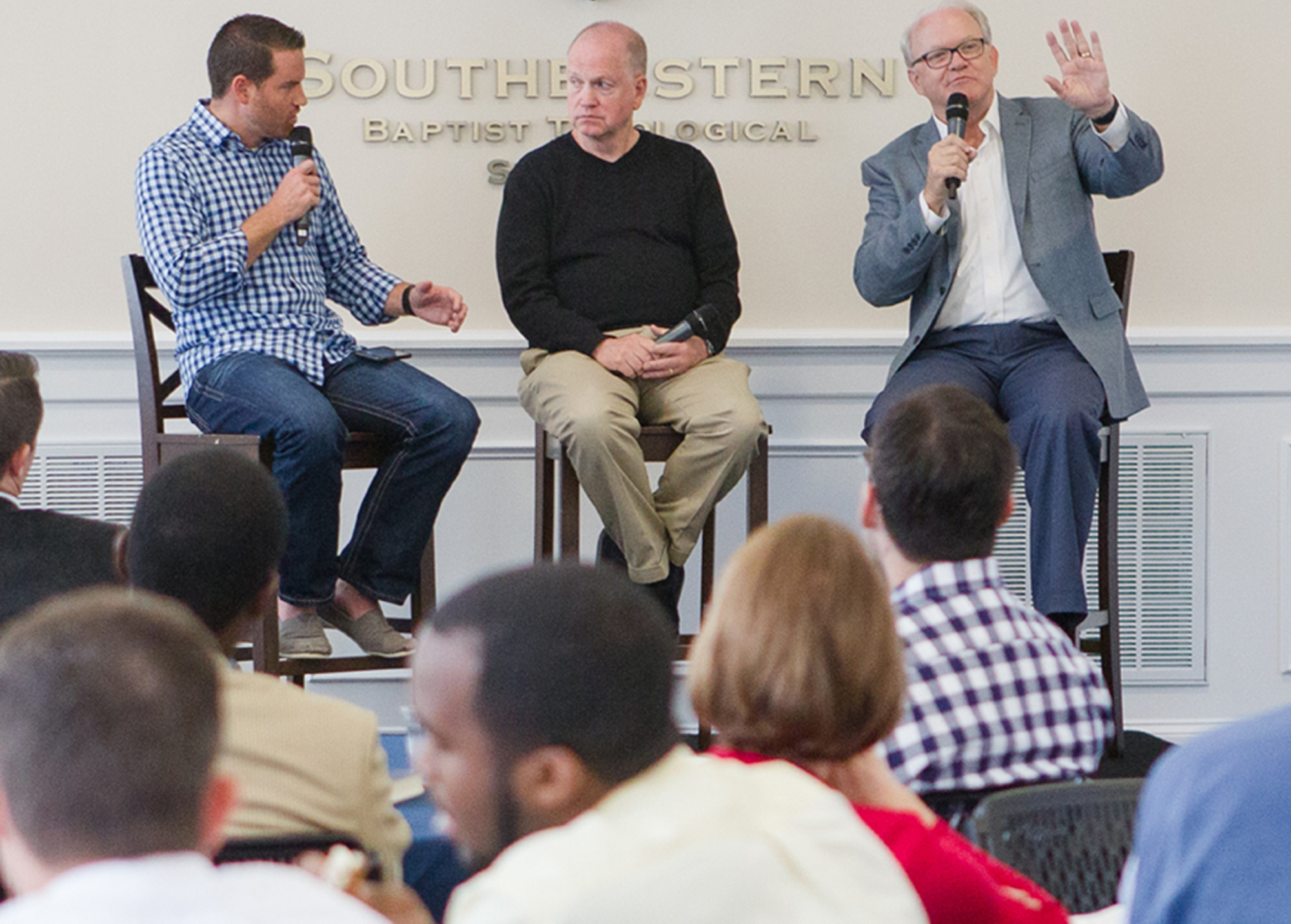
WAKE FOREST, N.C. (BP) — Frank S. Page addressed a range of topics in chapel, a panel discussion and a video interview at Southeastern Baptist Theological Seminary.
Page, president of the Southern Baptist Convention’s Executive Committee, underscored the involvement of young leaders in the SBC and its Cooperative Program during his Sept. 7 visit to the Wake Forest, N.C. campus.
In chapel, Page drew from the apostle Paul’s words in Philippians 3 on the importance of a Christian facing reality in a godly way.
Three keys to this kind of living, he said, are humility, grace and growth.
Referencing Philippians 3:13, Page encouraged students to not let their past hinder their growth into Christlikeness.
“I’m not thinking that this means an absence of memory,” he said, “but it is a resolution of attempt” to move forward in God’s grace.
Page challenged the students to remember that God wants them to enjoy the process of transformation into Christ’s image.
“God is not a God who demands perfectionism in the sense that we know perfectionism,” Page said. “He wants us to enjoy the stages of the journey as we grow toward that total Christlikeness.”
Page and SEBTS President Danny Akin spoke after chapel during a lunchtime panel moderated by Jonathan Akin, director of young leader engagement at the North American Mission Board. The panel focused on encouraging and challenging the younger demographic to be active in Southern Baptist life.
“I’d encourage you to stay involved,” Page said, “so that you can make the changes needed because if you become an outsider, nobody is going to listen to you.”
Page also noted that Southeastern is working to educate students on the importance of the Cooperative Program’s key role in national and international missions and ministries. Such efforts include a new intro to seminary course which places a large emphasis on the Cooperative Program as well as clearly stating on students’ bills how much they saved on tuition costs through their involvement in a Southern Baptist church.
Akin added, “We have a responsibility at the seminary to help students understand what the Cooperative Program is and why it works so well and why it’s really smart to be a part of it.”
During the panel discussion, attendees were encouraged to ask questions of Akin and Page. One student asked how the convention is addressing the the decline in pastors under the age of 40.
“We’ve gone through a mindset change in that the idea of pastors calling out the called in their church has been greatly deemphasized,” said Akin, who also noted that another issue stems from a lack of pastoral discipleship.
Page encouraged prospective church planters to avoid the notion that “you’re going to go to a place with no problems.” Others may be wary because of pastoral issues they have seen in the past, fearing that God may call them to walk down the same road, he said.
“Please be open to the call of God,” Page said. “He may call you to a hard-hearted church. That may be your ministry is revitalize, replant in that place,” said Page.
Prior to the chapel service, Page was interviewed by Jim Shaddix, director for the Center of Pastoral Leadership and Preaching at the Wake Forest, N.C., campus. To view the conversation, click here.
















